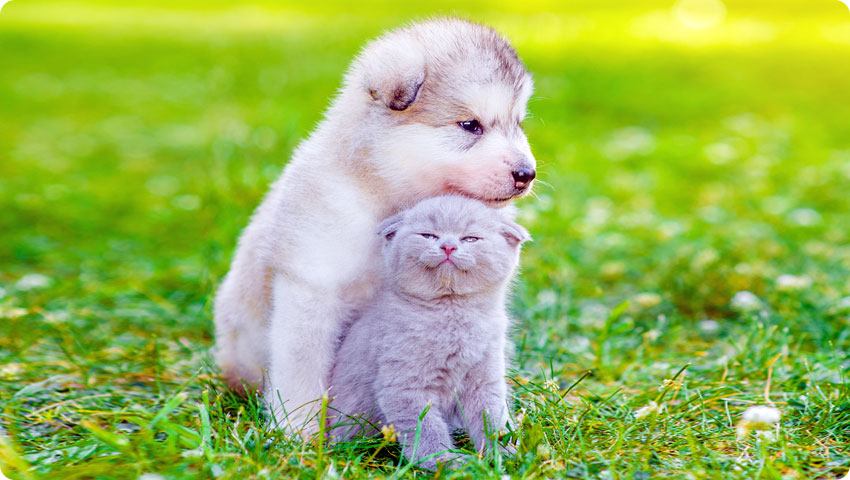Junior Years


There are some key areas to consider for your new puppy or kitten.
The correct diet is essential to start off on the right track. Dietary requirements are complex and will vary with breed and age of your pet. We encourage a premium brand commercial dry food as the base component and additional elements may be included on an individual basis. Generally, we recommend Hills Vet Essentials Puppy or Kitten which we find to be very palatable and provide a very pickupable end result! It is important when changing food that the transition occurs over a couple of weeks so as not to upset your little one’s tummy. Within the puppy/kitten pack you will receive at your first consultation with us is a voucher which provides a $20 discount off your first two bags. Diet can vary considerably between different breeds, so your consulting veterinarians will discuss diet with you at your first appointment.
Parasites have the potential to be a major problem in our young animals. Our younger pets are more prone to eating odd things (including faeces!) which frequently contain various parasites, so prevention is key. In the first three months, puppies and kittens should have fortnightly treatments which are moved to monthly up until six months of age. For dogs we recommend starting the annual heartworm injection (Proheart) from six months of age to reliably cover off the more critical heartworm component. Flea, tick and intestinal worming treatment can then be adjusted to quarterly! There are a wide variety of different flea, tick and worm control products on the market which can be very difficult to navigate. Typically, we recommend Bravecto (for flea and tick control) and Milpro (for intestinal worming control) for dogs and Revolution (for flea control) and Milpro (for intestinal worming control) for cats.
The first six months of life in our puppies and kittens is the most impressionable period. We always encourage pet parents to make a special effort to expose their youngsters to as many different situations, experiences and sounds as possible. For kittens this may be visitors, loud kids, vacuum cleaners and the garbage truck going past. Whereas for puppies this may be visiting cafes, doggy day care, walking past other dogs, loud voices, prams, bikes, wheelie bins and a very important experience for those that need it is grooming. We recommend you make more effort in the first six months than you may plan to long term as the difference in lifelong behaviours can be enormous if we fail to expose our young animals to these experiences.
Desexing for kittens we recommend by weight from 1kg. Ideally this is done before your kitten is six months old as hormonal behaviours including vocalising and marking (urinating inappropriately) may become permanent. For dogs the exact timing is a little more complex depending on the breed and in some cases behavioural traits. As a general rule, for smaller dogs we recommend desexing around six months old and for large and giant breeds around nine months old. This will vary with breeding requirements or specific breeds which may benefit for medical or behavioural reasons to be earlier or later. Your consulting veterinarian will discuss with you an appropriate time for desexing for your puppy at your initial consultation.
Microchipping should be done prior to you picking up your pet by the breeder or rescue group. Make sure you complete a transfer of ownership form when you collect your new family member, and you should receive a certificate of confirmation typically within 14 days of the transfer being lodged. If you have any concerns regarding your pets’ microchip, please let us know and we will help you work out any problems.
We strongly recommend that all pet owners assess their need for pet insurance when they get a new puppy or kitten. Insurers have different levels of cover which range from accident only to comprehensive cover (which covers the cost of routine treatments such as vaccinations, de-sexing and dental treatments) so it is important you spend some time researching what would best suit your individual financial needs. Although we are not qualified to provide any general or personal advice in relation to what type or level of insurance you should obtain, we do recommend that this is done when your pet is young so as to limit possible exclusions which may be imposed for pre-existing health conditions.
